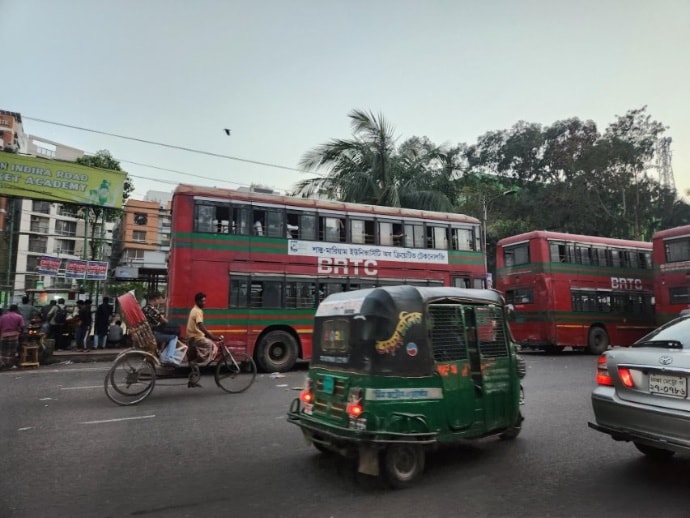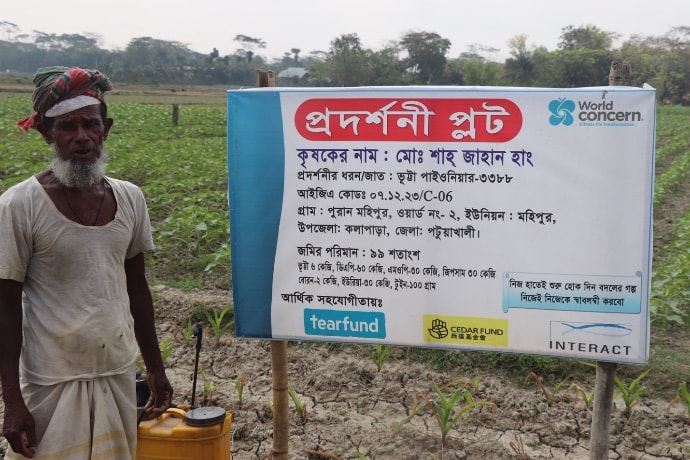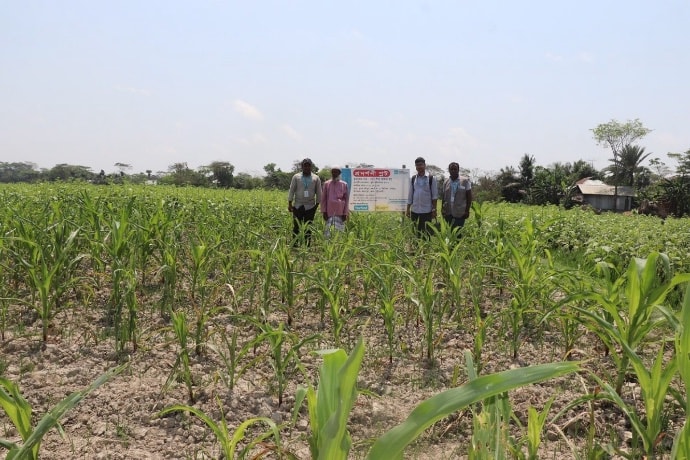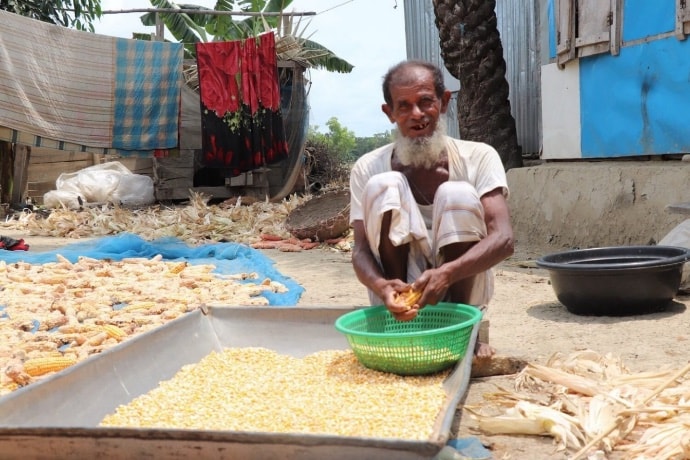By Sylvester Michael Modhu and Amanda Erne, World Concern

By 2050, Bangladesh is expected to lose 17% of its land surface and 30% of its food production to climate-change-driven sea level rise and coastal erosion.[1] This prediction would be concerning anywhere, but in the world’s eighth most populated country, densely packed with 172+million people, the impacts of such a change are hard to fathom
In the coastal region of Kalapara, farming communities are grappling with the severe impacts of climate change in real time, adapting to the increasing frequency and intensity of cyclones, tidal surges and saline intrusion. In the face of such large-scale threats to livelihoods and food security, what can individuals do? Community members in Kalapara are building climate resilience and restoring food security through a World Concern community program called, “PARIBARTAN” or, “change”.
Combatting Climate Change with “Change” Program
PARIBARTAN is focused on transformational community development through a variety of activities, among them farmer field schools, climate-smart agriculture, trainings and campaigns to reduce gender-based violence, disaster risk management committees, and women’s self-help groups.
Mr. Shajahan is a farmer participating in PARIBARTAN. He joined one of the four famer field schools and a farmers’ union. Growing crops to eat and sell has grown increasingly difficult on his farm. Cyclones are coming more frequently and hitting harder each season. Tidal surges bring salt in from the sea and saturate the ground, increasing soil salinity until crops cannot grow. In the dry season, Shajahan can look across the field and see a thin salt crust on top of the cracked soil, evidence of the challenge that he and the other farmers in his union must overcome to feed their families and take their crops to market.

Shajahan attends the field farmer school meeting regularly and discusses his problem with other farmers and World Concern program staff. He joined training sessions on climate-smart agriculture, where he learned techniques, such as raised-bed gardening, crop diversification and the use of organic fertilizers.
This past spring farming felt impossible. The salt damage was particularly bad on Shajahan’s farm and the crop growth was stunted. He asked World Concern staff to visit and see the challenge he was facing. At his invitation, staff and farmer prayed over Shajahan’s field, that he would be able to cultivate crops there, a testament to the staff’s desire to care for community members holistically, both spiritually and materially. Then they discussed specific techniques for managing salinity.

By implementing these techniques, Shajahan improved his land’s productivity despite salinity and climate change challenges. He diversified his crops, growing salt-tolerant varieties of corn, sunflower, and mugs, boosting his food security and income.

Increasing food security and building climate resilience is complex work. Another farmer in Shajahan’s union, a neighbor about one kilometer away, also follows the climate smart agriculture techniques and has seen incredible yield increases, yet recently he found extensive pest damage to his maize. After trying the recommended organic pesticides without success, he switched to synthetic. Still no solution. He’s awaiting feedback from others on what to try next.
But amidst the perpetual challenges of tending to the land in an ecosystem that is out of balance, the PARIBARTAN program has equipped farmers like Shajahan and his neighbor to adapt to climate change. By promoting sustainable practices, the project has not only improved farmers’ livelihoods but also built a more resilient, food-secure community capable of facing future challenges.
Components of PARIBARTAN program driving success:
- Training curriculum addresses specific farmer concerns, such as soil salinity and immediate food security needs.
- Adaptation and diversification. Training on hazard adapted crops, such as improved rice varieties, and saline-tolerant commodities, such as sunflowers.
- Investments this season in next seasons success. Seed banking, run by the women’s union. Women store seeds from the strongest plants in the harvest to plant the next season.
- Communal approach. Trainings are not intended for the benefit of individuals, but rather communities in farmer field schools, self-help groups, and farmer unions. Knowledge is shared and social connections are strengthened.
- Spiritually sensitive. Community members are not just physical beings. The spiritual aspects of life are respected and integrated.
- Pairing long-term resilience with short-term risk mitigation. In addition to trainings that will help farmers build up the soil for generations to come, short-term risk mitigation is integrated, with some communities making disaster-resilient home improvements (construction of plinth risings) ahead of cyclone season.
- Cross-cutting programming. The project has created a safer environment for women, girls, and other vulnerable individuals by addressing harmful gender and social norms. Religious leaders and other committees play a pivotal role in raising awareness and promoting gender equality. Trained individuals share their knowledge, contributing to a collective effort to reduce gender-based violence.
You can learn more about World Concern’s community partnerships for transformational development in Bangladesh and around the world at https://worldconcern.org/
[1]International Monetary Fund, https://www.imf.org/en/Publications/CR/Issues/2019/09/17/Bangladesh-Selected-Issues-48683